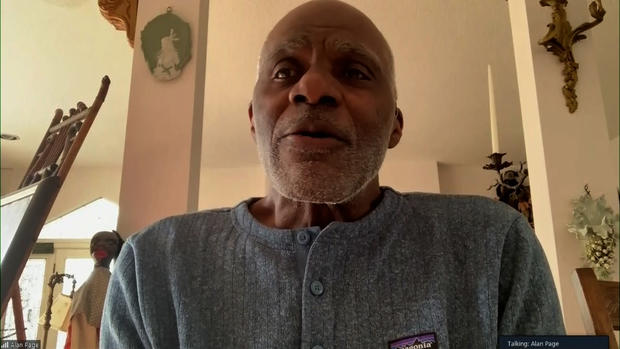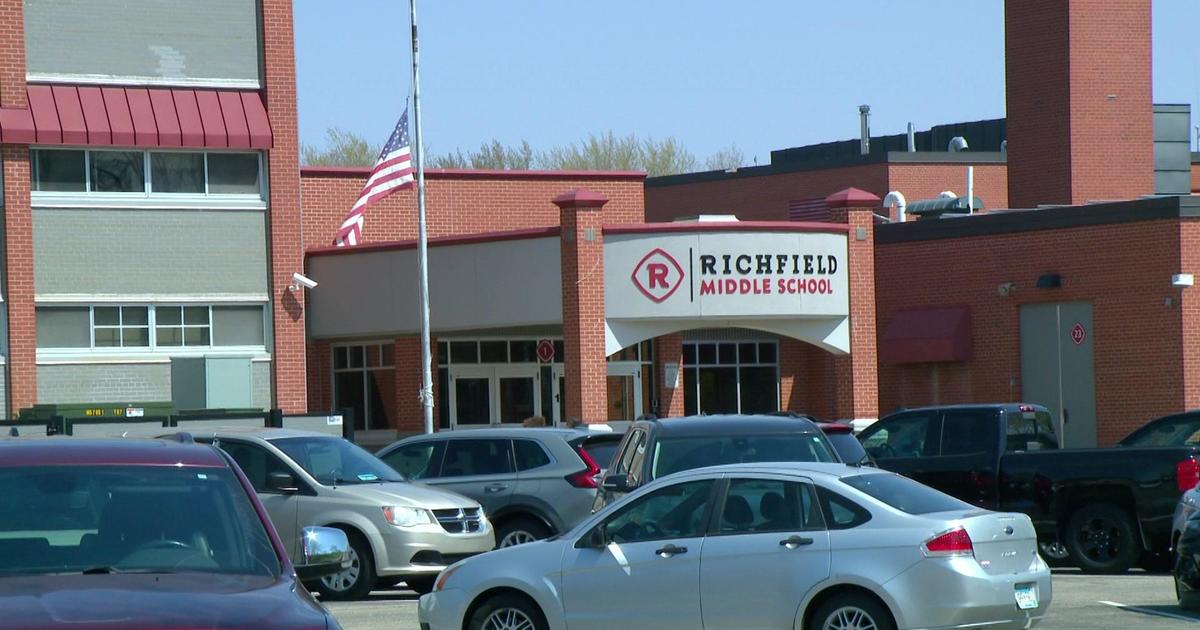Quality Education As A Civil Right: Renewed Push For Page Amendment At The Capitol
ST. PAUL, MINN. (WCCO) -- A proposal to ensure a quality public education as a constitutional right is resurfacing at the Minnesota State Capitol, an effort that supporters say takes on new urgency with the pandemic widening an already vast achievement gap that hurts poorer Minnesota children and students of color.
The Page amendment -- named for retired Minnesota Supreme Court Justice Alan Page, who has pushed for equity in education -- was introduced Monday. It would change the state's constitutional language to say the following:
All children have a fundamental right to a quality public education that fully prepares them with the skills necessary for participation in the economy, our democracy, and society, as measured against uniform achievement standards set forth by the state. It is a paramount duty of the state to ensure quality public schools that fulfill this fundamental right.
The amendment was first introduced during the 2020 session before the COVID-19 pandemic dominated the conversation. Page said in an interview that the proposal is a "catalyst for change" that overhauls constitutional language from 1857 that has so far failed children.
"I haven't seen anything in the last 50-plus years that I've been here in Minnesota that tells me that absent constitutional change, anything else will change," Page said.
READ MORE: 'We Have To Stop Segregating Ourselves': Justice Alan Page Reflects On Racism In Minnesota
The amendment has the backing of a diverse coalition of interest groups and Republican and Democratic lawmakers, who say this is the way to close the state's achievement gap. If it voters approve it, the legislature would be required to craft policies to ensure that quality education standard, though it's unclear what that would look like.
A report from the Minneapolis Federal Reserve Bank found that the state had some of the worst disparities for educational outcomes based on race and socioeconomic status. The gaps, researchers found, cut through standardized test scores, graduation rates and college readiness indicators.
Rep. Ron Kresha, R-Little Falls, is one of the co-sponsors of the bill.
"This forces the legislature to deal with a problem that they've talked about and admired for many, many years," Kresha said.
If approved by lawmakers this session, the issue would go before voters in 2022.
Supporters of the proposal and Gov. Tim Walz have acknowledged the pandemic has deepened these rifts. But not everyone sees the amendment as the right solution, including Walz, a former teacher. He champions mending those cracks in the education system, but has proposed his own way of doing it.
His "Due North" plan includes more than $745 million in new investments in elementary to 12th grade education, including launching anti-bias training for teachers and a program to recruit teachers of color.
RELATED: Gov. Walz Education Plan Focuses On Racial Equity, Closing Achievement Gap
Education Minnesota, the largest teachers' union in the state, supports Walz's education proposal but rebuffs the amendment, citing unintended consequences of getting tangled up in court with potential lawsuits.
The group also takes issue with some of the language that would be removed to be replaced by the Page amendment language.
"The problems facing public education are too urgent and obvious to waste time and money on constitutional lawsuits," the group said in a two-page document explaining its position. "Those cases could take as long as a decade to resolve and lead to a drawn out fight between the judicial and legislative branches over control of education policy and funding."
In a statement, a spokesman for the Minnesota School Boards Association said it was still reviewing the proposal and has not yet made a decision about its position.
Page in response to the concerns raised about potential legal battles said "whatever the cost of litigation might be, it pales in comparison" to costs of keeping the status quo.




